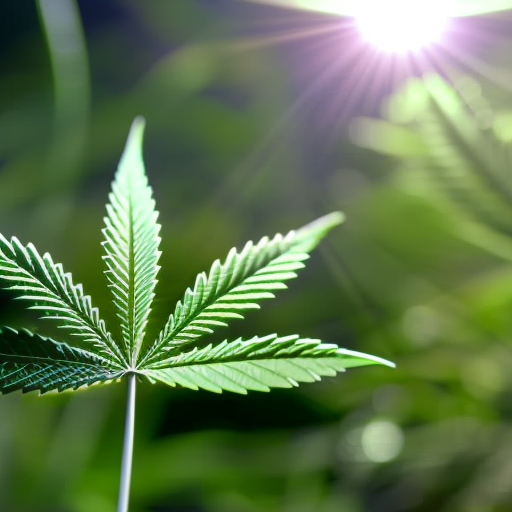
The therapeutic landscape of cannabinoid-based interventions continues to evolve, particularly as research delves deeper into the pharmacodynamics of various compounds present in cannabis. A recent study protocol, funded by the National Institute on Drug Abuse (NIDA) and published in the journal PLoS ONE, proposes to investigate the efficacy of hemp-derived cannabidiol (CBD) as a potential off-ramp for individuals grappling with marijuana use disorder (CUD). This study aims to elucidate whether CBD can facilitate a reduction in tetrahydrocannabinol (THC) consumption among heavy cannabis users who exhibit significant dependence.
The impetus for this study arises from the increasing prevalence of cannabis concentrate use, which has been correlated with heightened instances of CUD symptoms, including withdrawal, anxiety, and overall cannabis-related harms. The researchers, affiliated with the University of Colorado Boulder and Denver, posit that CBD, characterized by its non-intoxicating properties and minimal abuse liability, may offer a novel therapeutic strategy for individuals seeking to mitigate their dependence on THC.
The proposed study is a double-blind, randomized controlled trial targeting heavy, stable cannabis concentrate users who meet the diagnostic criteria for at least moderate CUD and express a desire to decrease or cease their cannabis consumption. Participants will be stratified into three groups: one receiving full-spectrum CBD (fsCBD), another receiving broad-spectrum CBD (bsCBD), and a placebo group devoid of CBD. Each participant will administer eight softgels daily, equating to a total dosage of 400 milligrams of CBD.
The distinction between fsCBD and bsCBD is critical; fsCBD contains trace amounts of THC (≤0.3%), compliant with federal legislation, whereas bsCBD is free of THC entirely. This stratification is essential for elucidating the specific contributions of THC in conjunction with CBD, particularly regarding withdrawal symptomatology and overall cannabis use reduction.
Prior research has indicated that CBD may possess unique modulatory effects on the endocannabinoid system (ECS), particularly in the context of addiction. For instance, studies have demonstrated that CBD can attenuate heroin-seeking behaviors and cravings in individuals with opioid dependence, suggesting a potential cross-addiction applicability to cannabis. The authors of the study hypothesize that the anxiolytic and antipsychotic properties of CBD could mitigate withdrawal symptoms in abstaining cannabis users, thus promoting a more favorable therapeutic outcome.
Moreover, existing literature highlights the synergistic relationship between CBD and low doses of THC, which may collectively contribute to a reduction in the rewarding properties of THC. The pharmacological mechanisms underpinning this relationship remain an area of active investigation, particularly as researchers continue to explore the intricate interplay between various cannabinoids and their receptor interactions within the ECS.
The anticipated outcomes of this trial could significantly advance the current understanding of cannabinoid pharmacotherapy, particularly in individuals struggling with CUD. Despite the promising preliminary data suggesting that hemp-derived CBD can mitigate THC-related withdrawal symptoms and reduce overall cannabis consumption, the lack of rigorous placebo-controlled trials necessitates further inquiry.
It is imperative to note that while CBD and THC interact with the same cannabinoid receptors—primarily the CB1 receptor—recent findings indicate that the effects of CBD on THC’s psychoactivity may not be straightforward. Contrary to the prevailing belief that CBD diminishes the euphoric effects of THC, emerging studies have posited that high doses of CBD may paradoxically enhance the subjective experience of a cannabis high, thereby complicating the narrative surrounding cannabinoid interactions.
The current study represents a pivotal step in rectifying the existing knowledge gaps by utilizing widely available hemp-derived CBD products. This approach stands in stark contrast to previous research that predominantly employed synthetic or isolated CBD formulations, which may not reflect the naturalistic conditions experienced by most cannabis users.
In conclusion, the ongoing investigation into hemp-derived CBD as a potential therapeutic modality for marijuana use disorder could herald a new frontier in addiction medicine. As the study protocol unfolds, it will offer invaluable insights into the efficacy of CBD in reducing THC consumption and alleviating withdrawal symptoms. The outcomes of this trial may not only inform clinical practices but also guide future research endeavors aimed at harnessing the therapeutic potential of cannabis-derived compounds in treating substance use disorders. The advancement of cannabinoid-based interventions may ultimately yield innovative solutions for individuals seeking respite from the throes of addiction.

